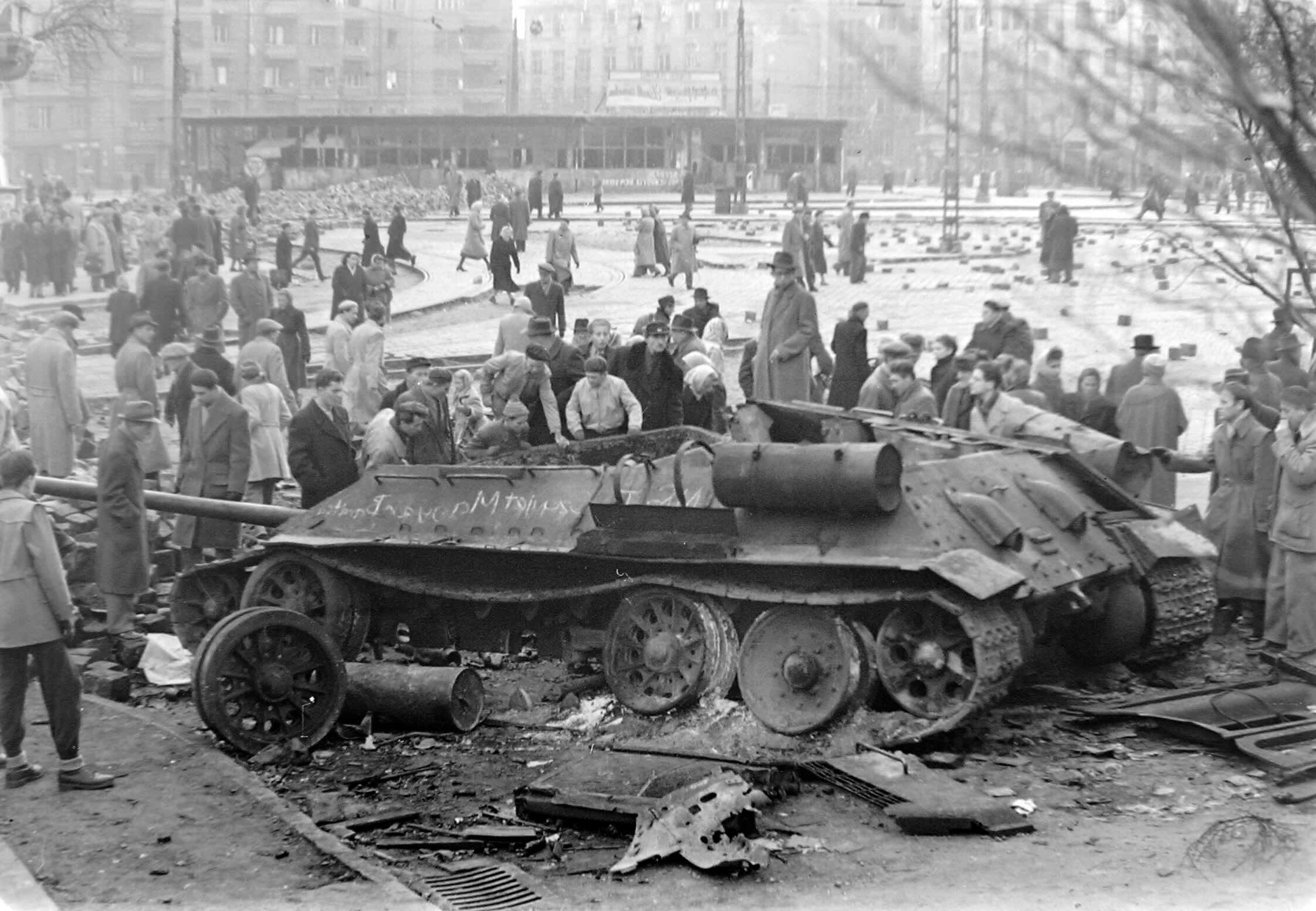
What was the Hungarian Civil War? The Hungarian Civil War, a turbulent period in Hungary's history, occurred between 1918 and 1920. This conflict erupted following the collapse of the Austro-Hungarian Empire at the end of World War I. Why did it happen? The power vacuum left by the empire's fall led to a struggle between various factions, including communists, royalists, and nationalists, each vying for control of the country. Who were the key players? Notable figures included Béla Kun, leader of the Hungarian Soviet Republic, and Miklós Horthy, who later became Regent of Hungary. What was the outcome? The war ended with Horthy's forces emerging victorious, leading to the establishment of the Kingdom of Hungary. This period significantly shaped Hungary's political landscape for years to come.
Key Takeaways:
- The Hungarian Civil War, which began in 1918, was a struggle between communist and nationalist forces, fueled by economic hardship and social unrest post-World War I.
- The war had a profound impact on Hungarian society and economy, leading to widespread destruction, economic hardship, land reforms, ethnic tensions, and significant emigration.
Origins of the Hungarian Civil War
The Hungarian Civil War was a turbulent period in Hungary's history, marked by internal strife and power struggles. Understanding its origins helps to grasp the complexity of this conflict.
- The Hungarian Civil War began in 1918, following the collapse of the Austro-Hungarian Empire.
- Hungary declared independence on November 16, 1918, leading to political instability.
- The war was primarily a struggle between communist and nationalist forces.
- The Hungarian Soviet Republic was established in March 1919, led by Béla Kun.
- The conflict was fueled by economic hardship and social unrest post-World War I.
Key Figures in the Conflict
Several prominent leaders played crucial roles during the Hungarian Civil War. Their actions and decisions significantly influenced the course of events.
- Béla Kun, a communist leader, became the head of the Hungarian Soviet Republic.
- Admiral Miklós Horthy emerged as a key figure for nationalist forces.
- Count Mihály Károlyi was the first President of the Hungarian Democratic Republic.
- Gyula Gömbös, a nationalist politician, later became Prime Minister of Hungary.
- István Friedrich briefly served as Prime Minister during the chaotic period.
Major Battles and Events
The Hungarian Civil War saw numerous battles and significant events that shaped the nation's future. These moments were pivotal in determining the outcome of the conflict.
- The Battle of Budapest in 1919 was a major confrontation between communist and nationalist forces.
- Romanian forces invaded Hungary in April 1919, complicating the internal conflict.
- The Red Terror, a campaign of violence by the communists, aimed to suppress opposition.
- The White Terror, a response by nationalist forces, targeted communists and their supporters.
- The Treaty of Trianon in 1920 significantly reduced Hungary's territory, impacting the war's dynamics.
International Involvement
The Hungarian Civil War did not occur in isolation. Various international actors played roles, influencing the conflict's progression and outcome.
- The Soviet Union supported the Hungarian Soviet Republic with military and financial aid.
- Romania's invasion was partly motivated by territorial disputes and regional dominance.
- France and the United Kingdom were concerned about the spread of communism in Europe.
- The League of Nations attempted to mediate and stabilize the region.
- Czechoslovakia also had interests in the conflict, seeking to secure its borders.
Social and Economic Impact
The war had profound effects on Hungarian society and economy. These impacts were felt long after the conflict ended, shaping the nation's future.
- The war caused widespread destruction and loss of life, deeply affecting Hungarian society.
- Economic hardship worsened due to the war, leading to shortages and inflation.
- Land reforms were implemented by the communists, redistributing land to peasants.
- The war exacerbated ethnic tensions, particularly with Hungary's minority populations.
- The conflict led to significant emigration, with many Hungarians fleeing the country.
Aftermath and Legacy
The Hungarian Civil War's aftermath left a lasting legacy on the nation. The consequences of the conflict influenced Hungary's political and social landscape for decades.
- Admiral Miklós Horthy became the Regent of Hungary, leading the country until 1944.
- The war's end marked the beginning of the Horthy era, characterized by authoritarian rule.
- Hungary's loss of territory in the Treaty of Trianon had long-term political and economic effects.
- The civil war contributed to the rise of right-wing extremism in Hungary.
- The conflict's legacy is still remembered in Hungary today, influencing national identity and historical memory.
Final Glimpse at the Hungarian Civil War
The Hungarian Civil War was a pivotal moment in history. It shaped the nation's future and left a lasting impact on its people. From the Battle of Mohács to the Treaty of Karlowitz, each event played a crucial role. The war saw the rise and fall of leaders, the clash of cultures, and the struggle for power. Understanding these facts helps us appreciate the complexities of Hungary's past. It also reminds us of the resilience and determination of its people. As we reflect on these historical moments, we gain a deeper appreciation for the sacrifices made and the lessons learned. The Hungarian Civil War is more than just a series of battles; it's a testament to the enduring spirit of a nation.
Frequently Asked Questions
Was this page helpful?
Our commitment to delivering trustworthy and engaging content is at the heart of what we do. Each fact on our site is contributed by real users like you, bringing a wealth of diverse insights and information. To ensure the highest standards of accuracy and reliability, our dedicated editors meticulously review each submission. This process guarantees that the facts we share are not only fascinating but also credible. Trust in our commitment to quality and authenticity as you explore and learn with us.
